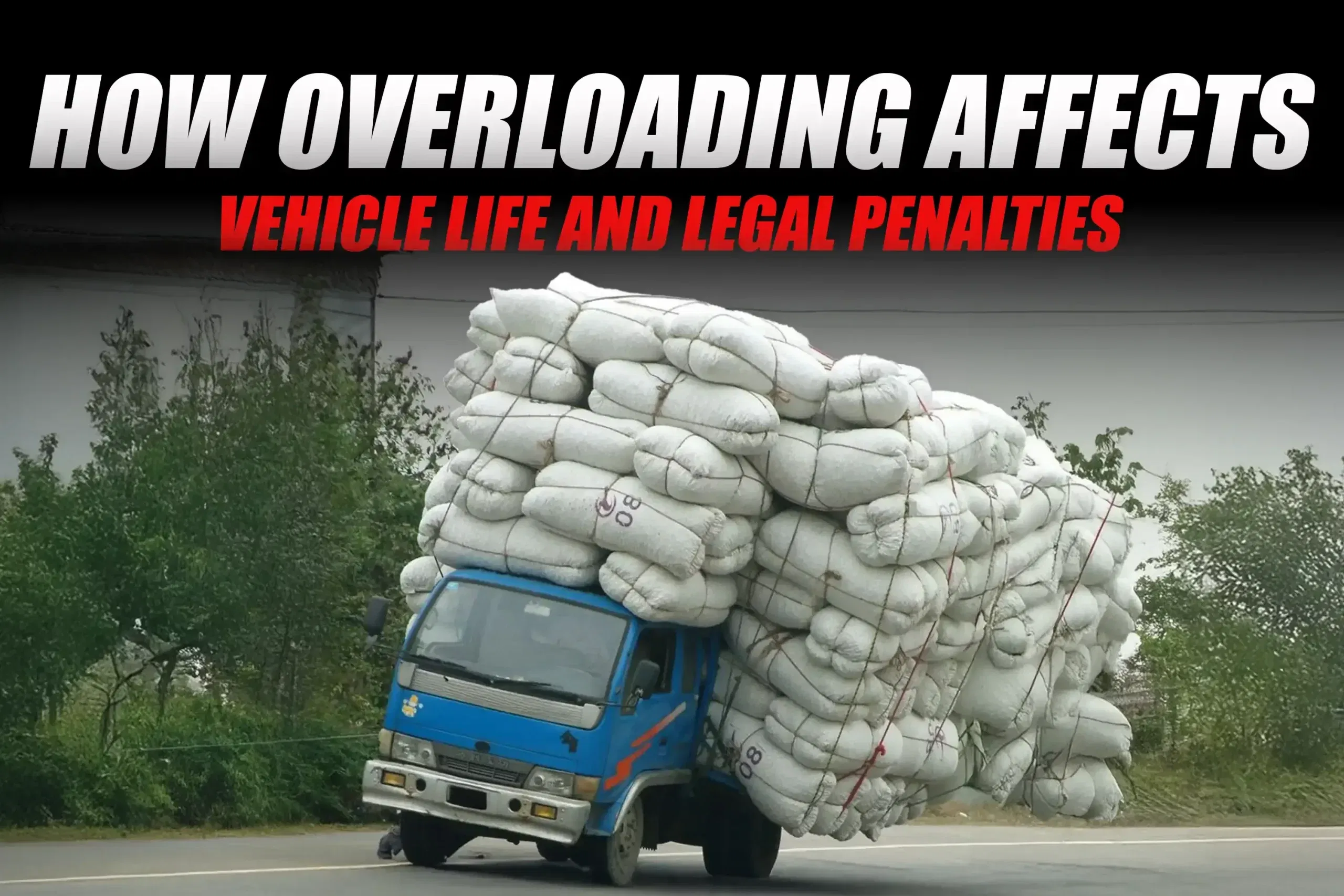Commercial vehicles are the lifeline that keeps commodities moving from manufacturers to markets on the road. They carry tons of cargo every day, keeping the country's supply channels running. Overloading is a behavior that slowly hurts safety, vehicle health, and even financial profits, but it's hard to see.
It could seem like a quick way to make more money. In reality, it slowly drains the equipment, the driver, and the business. Even worse, it gets the kind of legal attention that no fleet owner wants.
1. What We Mean by Overloading
A vehicle has a well defined Gross Vehicle Weight Rating (GVWR), which is the most weight it can safely transport. Engineers don't just guess this number; they find it out after evaluating the chassis, suspension, brakes, tires, and engine.
If you go over that amount, you are pushing every part of the truck beyond its limits. An automobile that can haul 20 tons but is rated for 16 tons doesn't only work harder; it also strains in ways that decrease its life.
2. The wear that isn't obvious right away
Overloading doesn't necessarily hurt things right away. It sneaks in discreetly, only to show up later as expensive repairs, shorter service intervals, and a lower resale value. The worst hits happen in a few important places:
- Engines under stress: When engines have to work harder than they are used to, they get too hot, vibrate more, and wear out important parts faster.
- Suspension and chassis fatigue: Springs and dampers break under the added weight, chassis frames bend or crack, and stability decreases.
- Tyres become thin: With increased weight, rolling resistance goes up, heat builds up, and the chances of a blowout go up.
- Brakes losing grip: Extra weight makes it harder to stop; brakes that get too hot can fail when you need them most.
Fuel costs are going higher. More load means more power demand, which can raise consumption by as much as 25%.
3. Dangers on the Road
Every extra weight on a vehicle not only puts greater stress on its parts, but it also makes the road more dangerous:
- When vehicles stop slowly, drivers have less time to avoid accidents.
- When loads are not balanced, the center of gravity moves, which makes rollovers more likely.
- Tires can rupture, suspensions can fail, or brakes can fail without warning.
It's not just the motorist who is at danger when these things go wrong. The goods, other drivers, and pedestrians are all in danger.
4. The Law Says And Charges
The Motor Vehicles Act in India has severe weight limitations, and enforcement is getting better. If you break the regulations, the punishments are severe:
- A fine of ₹20,000 for overloading, plus ₹2,000 for every extra tonne.
- Keeping the vehicle until the load is fixed.
- If you break the rules more than once, your license could be suspended or canceled.
- If a vehicle that is too heavy gets into an accident, the insurance company will not pay.
5. The Myth of Profit That Costs You More
It seems simple: if you carry more in one trip, you'll make more money. But here's what operators often miss: the hidden costs add up faster than the gains:
- More problems and time off.
- Faster depreciation lowers the value of resale.
- Use of fuel is going up quickly.
- Penalties are taking money out of wages.
What looks like a way to save money in the short term can turn into a pricey habit in the long run.
6. Not Getting Caught
The cure isn't hard, but it does need discipline:
- Before you leave, weigh your loads on a verified weighbridge.
- Teach train drivers to follow load restrictions and know the risks.
- For safety and balance, spread the weight equally.
- Use telematics to see how much weight is in a vehicle in real time.
Follow a strict maintenance program to find stress damage early.
7. The Last Word
Overloading isn't just against the law for vehicles. It slowly and purposefully damages a vehicle's health, puts lives at risk, and costs money. There are legitimate reasons for the rules, and following them protects not only the truck but also the business it serves.
For more articles and news, stay updated with 91trucks. Subscribe to our YouTube channel and follow us on Facebook, Instagram, and LinkedIn for the latest videos and updates from the automotive world!










